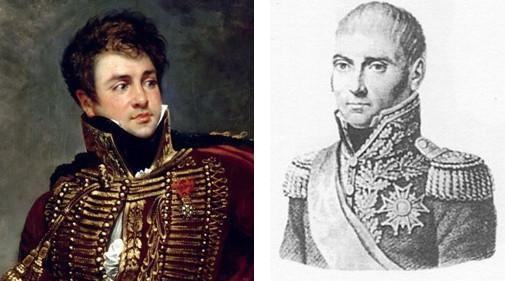
In 1794, at Strasbourg, the French Hussar François Fournier-Sarlovèze challenged a young man to a duel and killed him. When his fellow officer Pierre Dupont de l’Étang denied him entrance to a ball on the eve of the funeral, the fiery Fournier challenged him to a duel. The two fought with swords, and Fournier was wounded.
When he had recovered he challenged Dupont to a second duel, and wounded him. In their third meeting each inflicted a slight wound on the other. Finally the two agreed to a private war that would continue until one of them confessed that he was beaten or “satisfied.” They even drew up a contract:
- Every time that Dupont and Fournier shall be a hundred miles from each other they will each approach from a distance to meet sword in hand.
- Should one of the contracting parties be prevented by service duties, he who is free must travel the entire distance, so as to reconcile the obligations of service with the demands of the present treaty.
- No excuse whatever, excepting those resulting from military obligations, will be admitted.
- The present being a bona fide treaty, no alteration can be made to the conditions agreed upon by the contracting parties.
Over the ensuing 19 years the two fought at least 30 duels, each eventually rising to the rank of general. Finally, after a particularly savage meeting in Switzerland in 1813, in which Dupont ran his sword through Fournier’s neck, Dupont explained that he would be married soon and wanted to conclude the matter with a pistol duel in a nearby wood. Dupont twice tricked his opponent into firing at empty clothing, then advanced on him with pistols primed and claimed his victory. In The Duel, Robert Baldick writes, “Thus ended after a total period of nineteen years, the longest, friendliest and most mobile duel in history.”
(This story is so absurdly romantic that I doubted whether it happened at all, but every source I can find confirms at least the essentials. Joseph Conrad found an account of the rivalry in a provincial newspaper and turned it into his 1908 short story “The Duel,” and Ridley Scott turned Conrad’s story into the 1977 film The Duellists. I’ll keep digging.)
